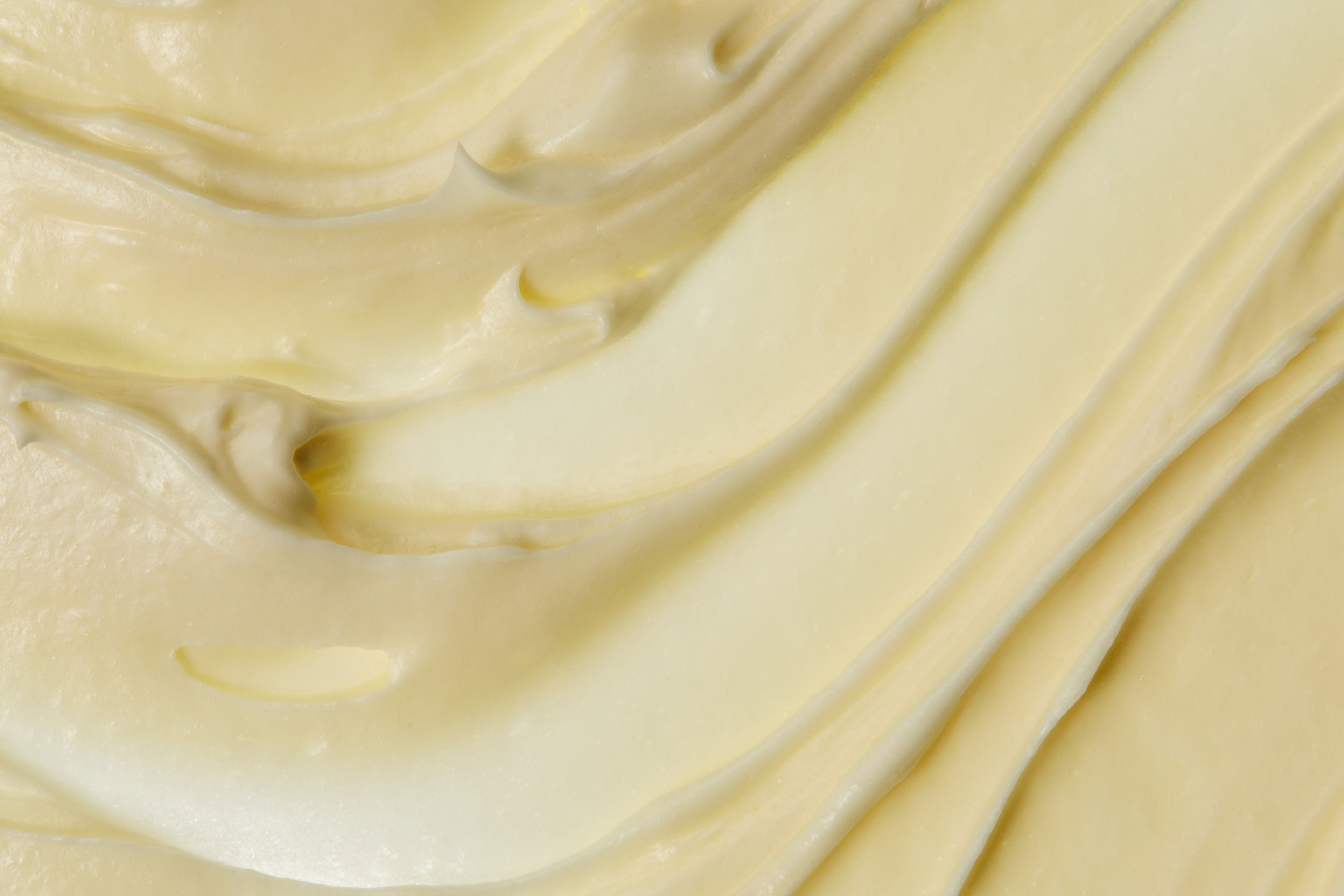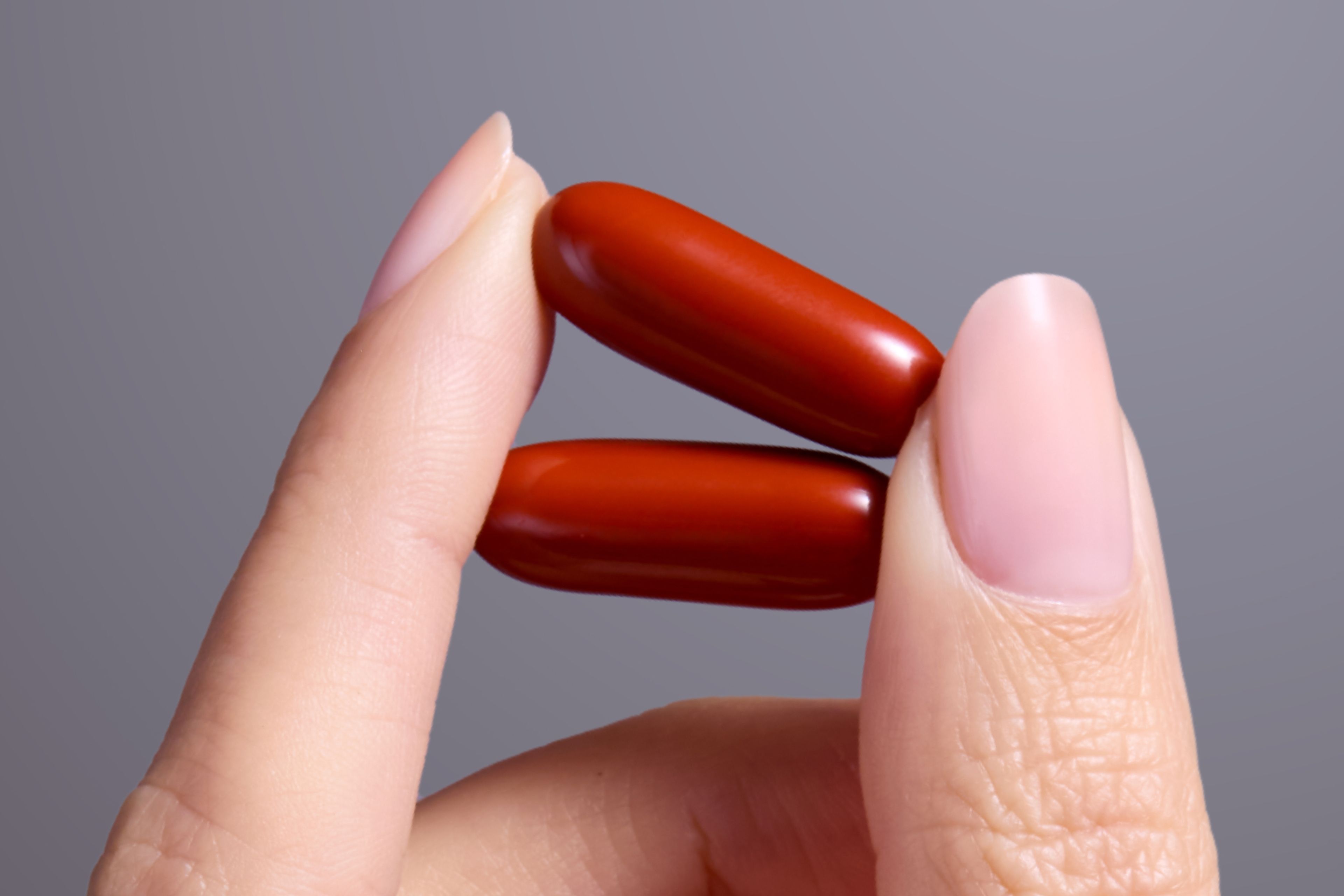The Connection Between The Gut Microbiome and Aging
The impact of aging on the gut microbiome: understanding how microbial diversity and composition shifts over time and its effects on overall health.

What to know
The gut microbiome plays a role in several elements of health, including digestion, brain function, and even muscle function.
One crucial role of the microbiome is the production of postbiotic molecules. For example, Urolithin A, which improves mitochondrial health and cellular energy, is produced through gut microbiome metabolism.
As we age, our microbiome changes. Factors that impact this include the natural decline in our digestive process and lifestyle factors like diet, medication, and activity level.
Diet, activity, and supplements are a few ways you can help to keep your gut healthy as you age.
Your gut nurtures trillions of inhabitants called microbes that make up your gut microbiome. The activity of these microbes not only influences digestion but also affects everything from brain health to muscle function.
With age, this ecosystem starts to experience changes, which can impact health. Exploring connections between the gut microbiome and aging reveals key strategies to enhance well-being and longevity.
The Function of The Gut
The gut microbiome plays a crucial role in several bodily processes. Beyond aiding digestion and supporting the integrity of the gut barrier, these microbes regulate immune responses, produce essential vitamins, and influence brain health via the gut-brain axis[1]
A particularly important function of the gut microbiome is its production of postbiotics—bioactive molecules that influence various systems, including inflammation control and cellular function.
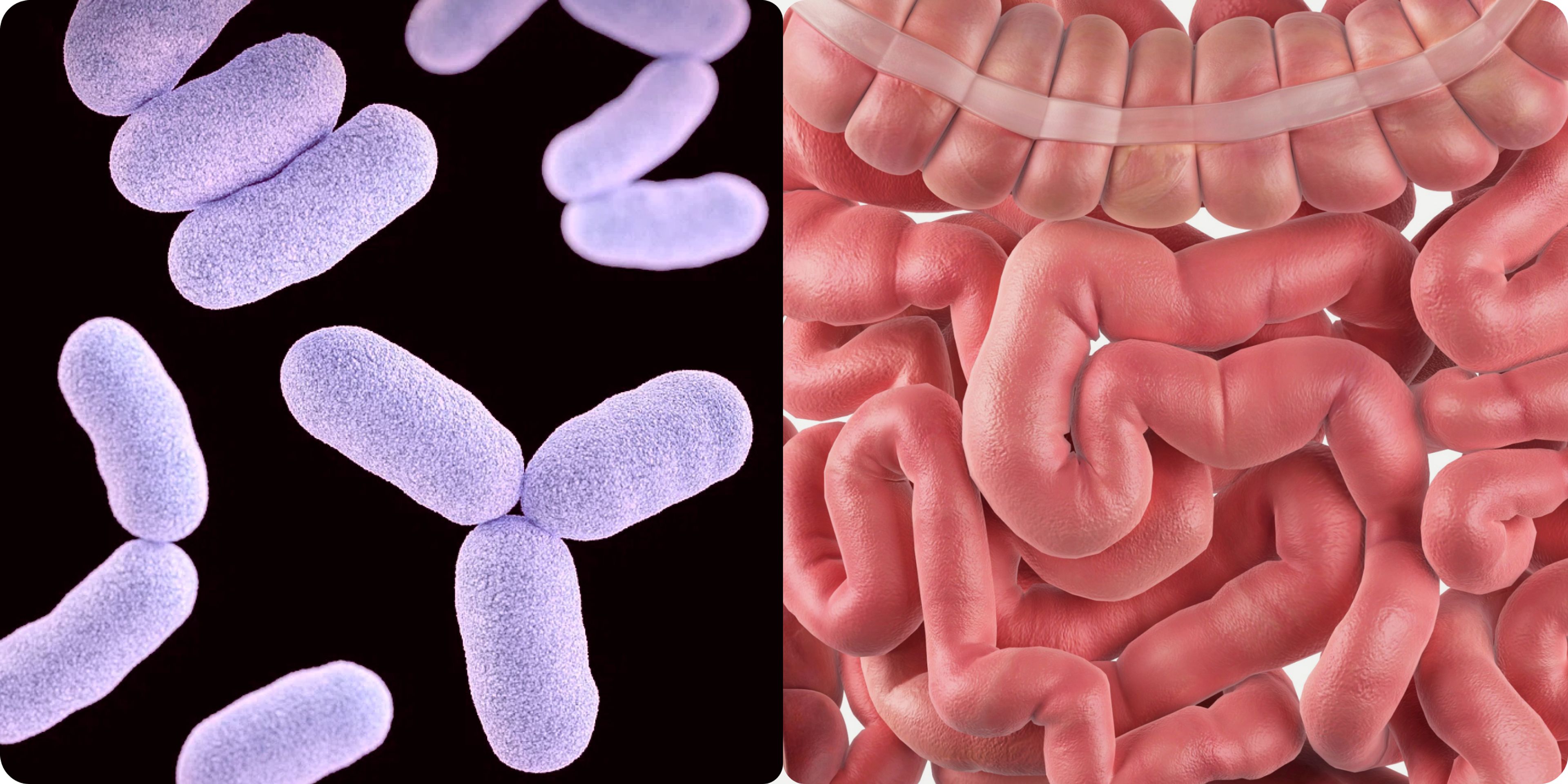
The Gut Microbiome and Aging Connection
Several studies show a stark difference in the microbiota of older adults compared to younger people. The connection between the gut microbiome and aging is so strong that dysbiosis—an imbalance in the gut's microbial environment—has been recognized as one of the biological hallmarks of aging.[2] This corroborates the Microbiome Theory of Aging (MTA), explaining how gut imbalances contribute to the development of age-related chronic conditions.
With the aging microbiome, this delicate balance can be compromised, leading to a decline in microbiome diversity with age and a decrease in health-promoting bacteria. These changes may also result in an increase in harmful microbes, which can negatively impact overall health.
What Affects the Gut Microbiome Over the Years?
Several factors influence the composition of the gut microbiome as we age, including both physiological and lifestyle changes.
- Digestive tract changes: Natural, age-related changes to the digestive system occur. This includes a decline in taste and smell, dental issues, and disruptions in the digestive process—such as a reduction in digestive enzymes. This impacts nutrient intake and, consequently, the gut microbiome.[3]
- Dietary changes: Shifts in appetite, food accessibility, and alterations in the gastrointestinal tract can influence both how and what we eat. Inadequate intake of essential nutrients can disrupt the balance of gut bacteria, diminishing health-promoting microbes and allowing harmful bacteria to thrive.[4]
- Medication use: Many people have an increased need for medications as they age. Studies suggest that medications like antibiotics and proton pump inhibitors (used to manage reflux and GERD) impact microbiome health.[5]
- Lack of physical activity: Physical inactivity, which is common as people age, can contribute to dysbiosis. Regular physical activity has been shown to promote the growth of beneficial gut bacteria, while sedentary behavior is associated with a decline in microbial diversity and health-promoting microbes.[6]
- Chronic stress: Growing evidence shows a strong link between stress and imbalances in the gut. Animal and human studies have demonstrated that both physical and psychological stressors can disrupt the delicate homeostasis of the microbiome. These alterations can contribute to inflammation, lowered immune resilience, and overall gut health issues.[7]
- Reduced social interaction: Our social networks play a surprising role in gut health. Research has shown that people with larger social circles tend to have more diverse gut microbes. However, older adults often experience fewer social interactions, which may contribute to a less diverse microbiome.[8]
How an Aging Gut Impacts Your Health
As the gut microbiome ages, it can have a ripple effect on various systems in the body. Here are some surprising ways that the changes in the microbiome can contribute to overall health and longevity.
Immune Health
70% of the immune system resides in the gut.[9] Hence, changes in the gut microbiome have a profound impact on immune health, especially as we age.
The microbiome-immune system interaction plays a critical role in regulating immune function by preserving the integrity of the intestinal barrier and producing key immune-response metabolites. However, as we age, this balance can shift, impacting the immune system and increasing vulnerability to inflammation and infection.[10]
The Gut-Muscle Axis
Interestingly, researchers have found an association between frailty and a lack of microbial diversity in the gut, suggesting that gut health influences muscle health. [11]In fact, the “gut-muscle axis” is now being used to describe how the gut microbiota can impact muscle mass, quality, and function.[12]
While a lot of this data is still in animal models, research in humans is starting to shed more light on this complex relationship.
Gut Health and Brain Health
Emerging research also shows that your gut health may be closely tied to your brain's well-being through what's known as the gut-brain axis. This bi-directional communication system links the central nervous system and the gut, meaning that changes in your gut microbiome can directly affect brain function.[13]
Ongoing research continues to explore the relationship between age-related changes in the gut microbiome and brain aging. While the connection is not yet fully understood, early studies suggest that shifts in the gut microbiome are linked to neurological issues, including cognitive decline.[14]
The Role of Postbiotics in Aging
One of the most fascinating roles the gut microbiome plays in human health is its ability to produce postbiotics. These bioactive compounds, which include short-chain fatty acids, enzymes, peptides, and certain vitamins, are essential for regulating inflammation, supporting immune function, and enhancing overall cellular health.
Among the postbiotics is Urolithin A, a compound produced when gut bacteria metabolize ellagitannins, a type of polyphenol found in foods like pomegranates and walnuts. Urolithin A has gained attention for its ability to promote mitophagy, a cellular process that helps clear out damaged mitochondria, allowing cells to function more efficiently.[15]
Since mitochondrial decline is a hallmark of aging, research is well underway to understand how Urolithin A can help humans age better.
Unfortunately, only about 30-40% of people possess the necessary gut bacteria to naturally produce Urolithin A, limiting their ability to obtain this compound from their diet. [16]Mitopure®, the first-ever clinically-tested Urolithin A supplement, overcomes the dietary challenges and can be absorbed by everyone.

Mitopure Softgels
Bestseller4.4 · 3060 reviews
The simplest form of Mitopure
Strategies to Improve Gut Health with Age
Research on the gut microbiome changes with aging is continuing to advance, but there are several strategies that we can employ today to help care for our gut.
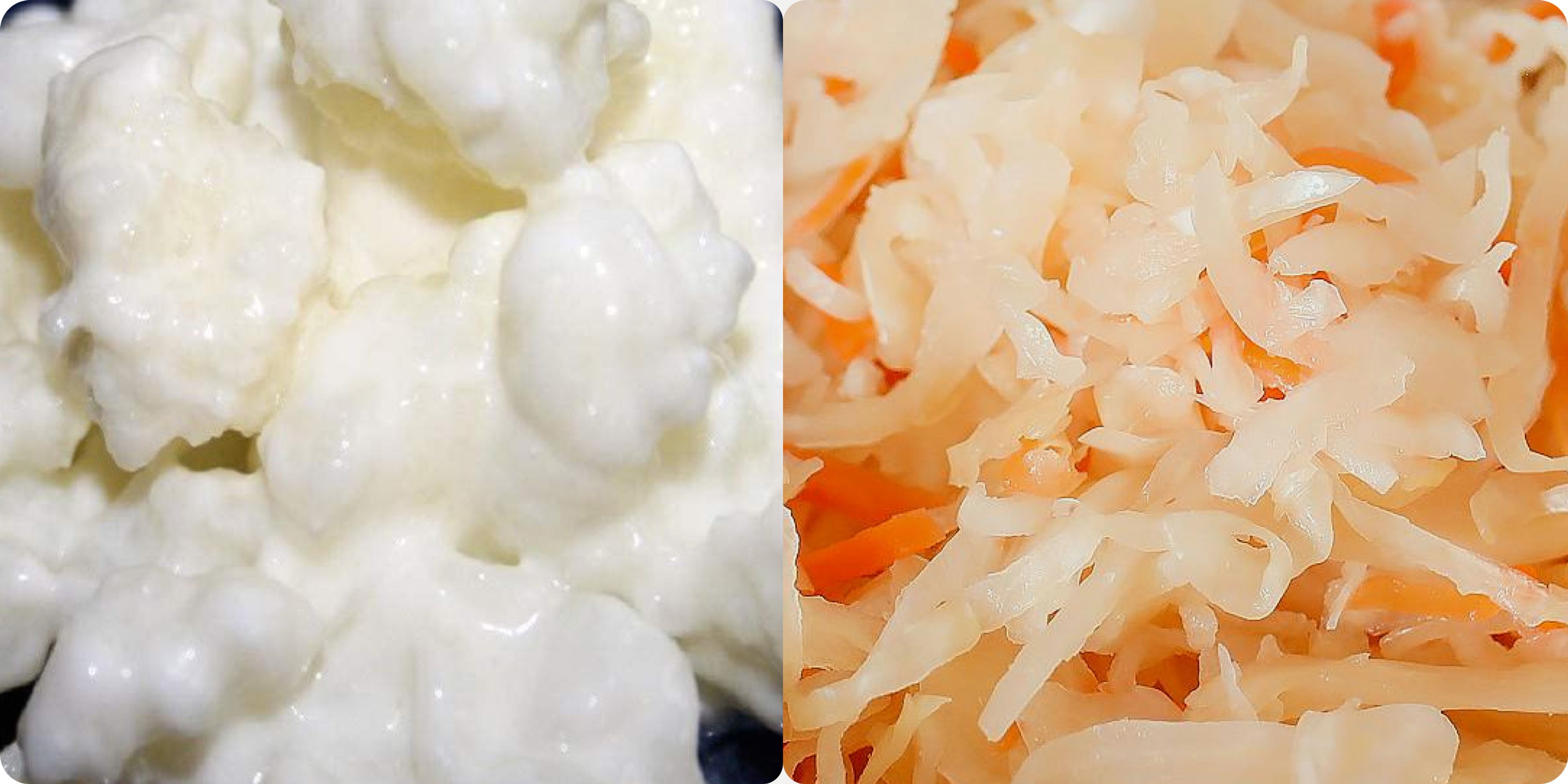
Eat a Gut-Friendly Diet
Diets rich in fiber and polyphenols support a healthy gut microbiome. These nutrients act as prebiotics, providing essential fuel for beneficial gut bacteria to thrive, improving digestion and overall health.
Fermented foods, such as yogurt, kefir, sauerkraut, kimchi, and kombucha, may also support gut health by introducing probiotics—live beneficial bacteria—into the digestive system.
A Mediterranean-style diet, rich in these types of foods, may help keep our gut microbiome balanced with age. A study involving a one-year Mediterranean Diet intervention in 612 older adults demonstrated increased gut microbial diversity that was associated with improved cognitive function and a lower risk of frailty and inflammation.[17]
Physical Activity for Gut Health
Regular physical activity has long been recognized as a cornerstone of health and longevity, but its emerging connection to gut health reveals even broader benefits. Exercise has been shown to promote the growth of beneficial gut bacteria, enhancing microbial diversity and supporting both digestive and immune health.[18]
However, it is not yet fully understood which types or amounts of exercise are most effective for maintaining a healthy microbiome, as some evidence suggests that excessive exercise may actually disrupt the gut balance.[19]
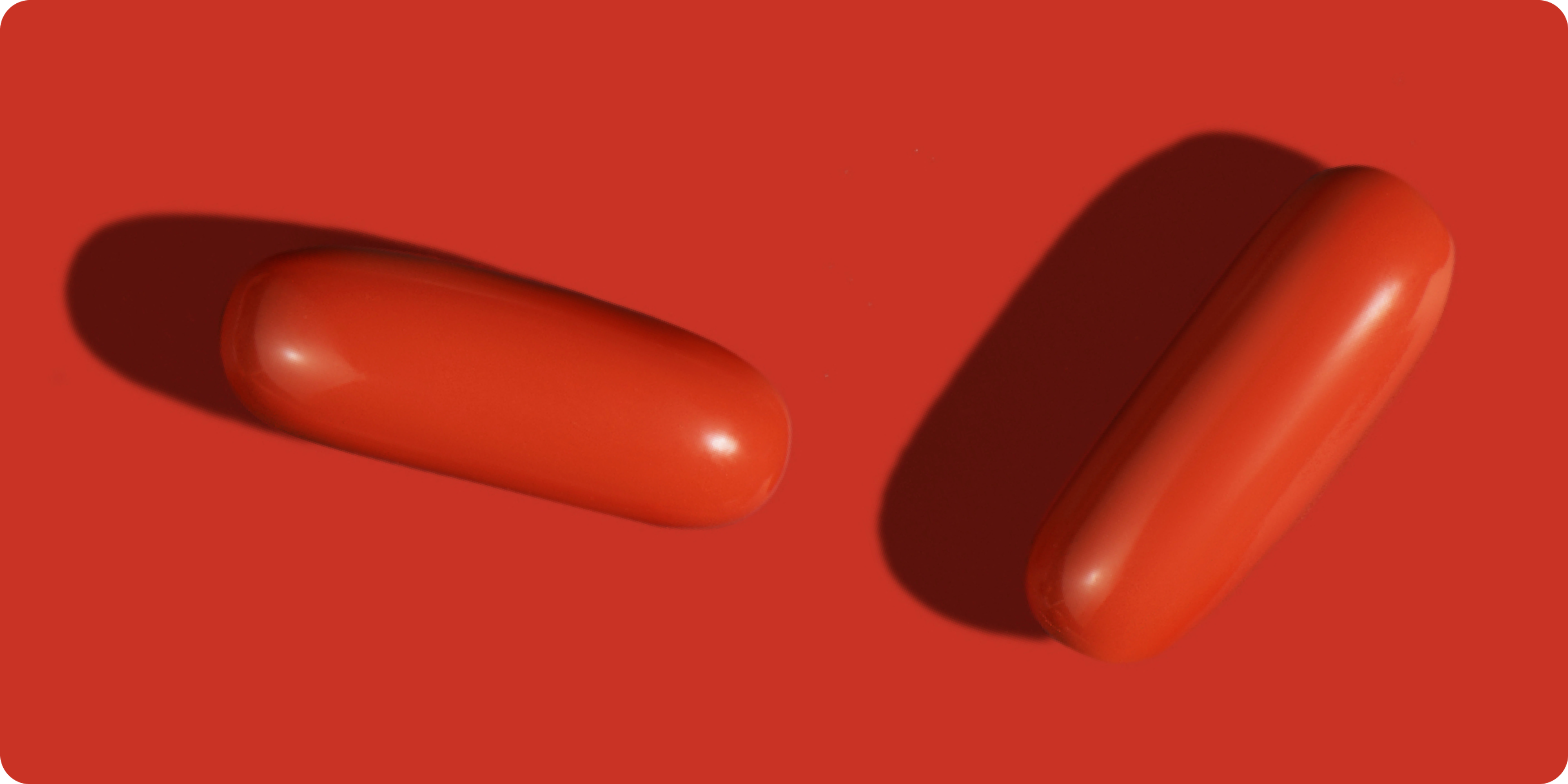
Dietary supplements
High-quality dietary supplements can help support your journey toward a healthy gut. For example, probiotics introduce live microorganisms into the gut, aiming to restore microbial balance. Prebiotics, on the other hand, consist of non-digestible ingredients like fiber or polyphenols that fuel beneficial bacteria, encouraging their growth.
While probiotics and prebiotics are commonly used to support gut health, there are some challenges associated with both strategies. For probiotics, the key issue is the survival of the bacteria through the digestive process; strains must endure the acidic environment of the stomach and make it to the colon intact to be effective. Prebiotics, on the other hand, depend on the existing bacteria in your gut to fuel beneficial microbes rather than introducing new, health-promoting strains. This means their effectiveness is limited by the current composition of your microbiome.
Postbiotic supplements bypass these challenges. Postbiotics, like Mitopure®, are already bioactive compounds that are easily absorbed by the gut, regardless of your microbiome makeup.
Clinical studies have shown that directly supplementing with Mitopure® can improve cellular energy, increase muscle strength, and enhance endurance—making it a powerful tool[20] in supporting both gut health and overall well-being.
Final Thoughts
As we age, the changes in our gut microbiome can have a profound impact on our overall health—from immune function and muscle mass to brain health and longevity. However, by adopting strategies like a nutrient-rich diet, regular physical activity, and smart supplementation, you can actively support your gut health and promote healthy aging.
Prioritizing the health of your gut microbiome is not just about digestion—it's about enhancing your quality of life and well-being for years to come.
Authors

Professor of Nutrition & Scientific Writer

Reviewed by
Senior Manager of Nutrition Affairs
References
- ↑
Jandhyala SM, Talukdar R, Subramanyam C, Vuyyuru H, Sasikala M, Reddy DN. Role of the normal gut microbiota. World J Gastroenterol WJG. 2015;21(29):8787-8803. doi:10.3748/wjg.v21.i29.8787
- ↑
López-Otín C, Blasco MA, Partridge L, Serrano M, Kroemer G. Hallmarks of aging: An expanding universe. Cell. Published online January 3, 2023. doi:10.1016/j.cell.2022.11.001
- ↑
Bhutto A, Morley JE. The clinical significance of gastrointestinal changes with aging. Curr Opin Clin Nutr Metab Care. 2008;11(5):651-660. doi:10.1097/MCO.0b013e32830b5d37
- ↑
Ghosh TS, Shanahan F, O’Toole PW. The gut microbiome as a modulator of healthy ageing. Nat Rev Gastroenterol Hepatol. 2022;19(9):565-584. doi:10.1038/s41575-022-00605-x
- ↑
Imhann F, Vich Vila A, Bonder MJ, Lopez Manosalva AG, Koonen DPY, Fu J, Wijmenga C, Zhernakova A, Weersma RK. The influence of proton pump inhibitors and other commonly used medication on the gut microbiota. Gut Microbes. 2017 Jul 4;8(4):351-358. doi: 10.1080/19490976.2017.1284732. Epub 2017 Jan 24. Erratum for: Addendum to: Imhann F, Bonder MJ, Vich Vila A, Fu J, Mujagic Z, Vork L, Tigchelaar EF, Jankipersadsing SA, Cenit MC, Harmsen HJ, Dijkstra G, Franke L, Xavier RJ, Jonkers D, Wijmenga C, Weersma RK, Zhernakova A. Proton pump inhibitors affect the gut microbiome. Gut 2016. PMID: 28118083; PMCID: PMC5570416.
- ↑
Monda V, Villano I, Messina A, et al. Exercise Modifies the Gut Microbiota with Positive Health Effects. Oxid Med Cell Longev. 2017;2017:3831972. doi:10.1155/2017/3831972
- ↑
Karl JP, Hatch AM, Arcidiacono SM, Pearce SC, Pantoja-Feliciano IG, Doherty LA, Soares JW. Effects of Psychological, Environmental and Physical Stressors on the Gut Microbiota. Front Microbiol. 2018 Sep 11;9:2013. doi: 10.3389/fmicb.2018.02013. PMID: 30258412; PMCID: PMC6143810.
- ↑
Ghosh TS, Shanahan F, O’Toole PW. The gut microbiome as a modulator of healthy ageing. Nat Rev Gastroenterol Hepatol. 2022;19(9):565-584. doi:10.1038/s41575-022-00605-x
- ↑
Wiertsema SP, van Bergenhenegouwen J, Garssen J, Knippels LMJ. The Interplay between the Gut Microbiome and the Immune System in the Context of Infectious Diseases throughout Life and the Role of Nutrition in Optimizing Treatment Strategies. Nutrients. 2021 Mar 9;13(3):886. doi: 10.3390/nu13030886. PMID: 33803407; PMCID: PMC8001875.
- ↑
Wiertsema SP, van Bergenhenegouwen J, Garssen J, Knippels LMJ. The Interplay between the Gut Microbiome and the Immune System in the Context of Infectious Diseases throughout Life and the Role of Nutrition in Optimizing Treatment Strategies. Nutrients. 2021 Mar 9;13(3):886. doi: 10.3390/nu13030886. PMID: 33803407; PMCID: PMC8001875.
- ↑
Piggott DA, Tuddenham S. The gut microbiome and frailty. Transl Res. 2020 Jul;221:23-43. doi: 10.1016/j.trsl.2020.03.012. Epub 2020 May 1. PMID: 32360945; PMCID: PMC8487348.
- ↑
Chew W, Lim YP, Lim WS, Chambers ES, Frost G, Wong SH, Ali Y. Gut-muscle crosstalk. A perspective on influence of microbes on muscle function. Front Med (Lausanne). 2023 Jan 9;9:1065365. doi: 10.3389/fmed.2022.1065365. PMID: 36698827; PMCID: PMC9868714.
- ↑
Cryan JF, O'Riordan KJ, Cowan CSM, Sandhu KV, Bastiaanssen TFS, Boehme M, Codagnone MG, Cussotto S, Fulling C, Golubeva AV, Guzzetta KE, Jaggar M, Long-Smith CM, Lyte JM, Martin JA, Molinero-Perez A, Moloney G, Morelli E, Morillas E, O'Connor R, Cruz-Pereira JS, Peterson VL, Rea K, Ritz NL, Sherwin E, Spichak S, Teichman EM, van de Wouw M, Ventura-Silva AP, Wallace-Fitzsimons SE, Hyland N, Clarke G, Dinan TG. The Microbiota-Gut-Brain Axis. Physiol Rev. 2019 Oct 1;99(4):1877-2013. doi: 10.1152/physrev.00018.2018. PMID: 31460832.
- ↑
Cryan JF, O'Riordan KJ, Cowan CSM, Sandhu KV, Bastiaanssen TFS, Boehme M, Codagnone MG, Cussotto S, Fulling C, Golubeva AV, Guzzetta KE, Jaggar M, Long-Smith CM, Lyte JM, Martin JA, Molinero-Perez A, Moloney G, Morelli E, Morillas E, O'Connor R, Cruz-Pereira JS, Peterson VL, Rea K, Ritz NL, Sherwin E, Spichak S, Teichman EM, van de Wouw M, Ventura-Silva AP, Wallace-Fitzsimons SE, Hyland N, Clarke G, Dinan TG. The Microbiota-Gut-Brain Axis. Physiol Rev. 2019 Oct 1;99(4):1877-2013. doi: 10.1152/physrev.00018.2018. PMID: 31460832.
- ↑
D’Amico D, Andreux PA, Valdés P, Singh A, Rinsch C, Auwerx J. Impact of the Natural Compound Urolithin A on Health, Disease, and Aging. Trends Mol Med. 2021;27(7):687-699. doi:10.1016/j.molmed.2021.04.009
- ↑
Singh A, D'Amico D, Andreux PA, Dunngalvin G, Kern T, Blanco-Bose W, Auwerx J, Aebischer P, Rinsch C. Direct supplementation with Urolithin A overcomes limitations of dietary exposure and gut microbiome variability in healthy adults to achieve consistent levels across the population. Eur J Clin Nutr. 2022 Feb;76(2):297-308. doi: 10.1038/s41430-021-00950-1. Epub 2021 Jun 11. PMID: 34117375; PMCID: PMC8821002.
- ↑
Ghosh TS, Rampelli S, Jeffery IB, Santoro A, Neto M, Capri M, Giampieri E, Jennings A, Candela M, Turroni S, Zoetendal EG, Hermes GDA, Elodie C, Meunier N, Brugere CM, Pujos-Guillot E, Berendsen AM, De Groot LCPGM, Feskins EJM, Kaluza J, Pietruszka B, Bielak MJ, Comte B, Maijo-Ferre M, Nicoletti C, De Vos WM, Fairweather-Tait S, Cassidy A, Brigidi P, Franceschi C, O'Toole PW. Mediterranean diet intervention alters the gut microbiome in older people reducing frailty and improving health status: the NU-AGE 1-year dietary intervention across five European countries. Gut. 2020 Jul;69(7):1218-1228. doi: 10.1136/gutjnl-2019-319654. Epub 2020 Feb 17. PMID: 32066625; PMCID: PMC7306987.
- ↑
Donati Zeppa S, Agostini D, Ferrini F, Gervasi M, Barbieri E, Bartolacci A, Piccoli G, Saltarelli R, Sestili P, Stocchi V. Interventions on Gut Microbiota for Healthy Aging. Cells. 2022 Dec 22;12(1):34. doi: 10.3390/cells12010034. PMID: 36611827; PMCID: PMC9818603.
- ↑
Andreux PA, Blanco-Bose W, Ryu D, et al. The mitophagy activator urolithin A is safe and induces a molecular signature of improved mitochondrial and cellular health in humans. Nat Metab. 2019;1(6):595-603. doi:10.1038/s42255-019-0073-4
- ↑
Andreux PA, Blanco-Bose W, Ryu D, et al. The mitophagy activator urolithin A is safe and induces a molecular signature of improved mitochondrial and cellular health in humans. Nat Metab. 2019;1(6):595-603. doi:10.1038
Disclaimer
The information in this article is for informational purposes only and should not be taken as medical advice. Always consult with your medical doctor for personalized medical advice.






